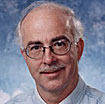Commentary on Psalm 33:12-22
Several years ago, David Tracy summarized his rather complex systematic theology and his work as a theologian as follows: “What is the nature of ultimate reality? And the answer: God. And more explicitly, God is love. That is an extraordinary thought . . . this great mystery—that love is the basic reality. And that is what my work is all about.”1 In a real sense, this is also what Psalm 33 is all about—the affirmation “that love is the basic reality,” along with praise for the God whose steadfast love fills the earth (Psalm 33:5b), as well as an invitation to trust this God.
Unfortunately, the lection omits the first eleven verses of Psalm 33 that begin with an extended invitation to praise God (verses 1-3), followed by reasons for praise (verses 4-11). This is the typical structure of a song of praise, and it forms the background of verses 12-22, which Gerald Wilson labels an “Exhortation to Trust Yahweh.”2 What we miss by the omission of verses 1-11 includes the “stunning affirmation”3 that “the earth is full of the steadfast love of the LORD” (verse 5b; see Psalm 36:5-6 for a similar affirmation). The rest of the psalm is fundamentally an explication of this verse. In short, God is to be trusted, because divine love is all-encompassing. Not surprisingly, both the “Exhortation to Trust Yahweh” (verses 12-19) and the concluding expression of trust (verses 20-22) include the Hebrew word hesed, “steadfast love” (verses 18, 20).
By the way, another drawback of reading snippets of psalms in isolation is this—in this case, we miss the likelihood that Psalm 33 is an expansion upon the affirmation at the end of Psalm 32 that “steadfast love surrounds those who trust in the LORD” (32:10). An intentional link between Psalms 32 and 33 is all the more likely since Psalm 33:1 appears to be a direct response to 32:11, the final verse of Psalm 32. When Psalms 32 and 33 are heard together, the affirmation is that the divine grace offered to sinners (Psalm 32) is the same power that lies behind the creation of the world (33:6-7, although verse 7 may also be an allusion to the exodus), the events of history (verses 10-12), the supervision of humankind (verses 13-15), and the unmasking of so-called worldly power (verses 16-17). All this is evidence of God’s steadfast love, which is the sure hope of those who “fear” God (verse 18). “Fear” here, of course, connotes not fright, but rather those who fear God are those who “align themselves with YHWH’s rule in the world.”4
The courage to trust
The rehearsal of how God’s steadfast love is active in the world (verses 4-19) leads to an affirmation of hope and trust in verses 20-21 and a final prayer that God’s steadfast love would continue to be present (verse 22). Praise and trust are inextricably connected. As James L. Mays concludes, Psalm 33 “praises the God whom the righteous trust—therein lies their rightness, that they trust the LORD.”5 In this regard, Psalm 33 recalls Psalm 49, the psalm for last Sunday. In Psalm 49, what sets the impoverished psalmist apart from the wealthy and oppressive opponents is the matter of trust—the opponents trust themselves and their wealth (Psalm 49:6) while the psalmist entrusts life and future to God (49:15).
Praising God and trusting God rather than self or wealth is an act of courage, because we live in a culture that encourages self-assertion and acquisitiveness as a measure of maturity and success. As Brueggemann and Bellinger put it, as a song of praise and invitation to trust, Psalm 33 is “a powerful antidote to every temptation to autonomy and self-sufficiency.”6
Believing is seeing
The pervasive secularity of our culture also presents a difficulty when it comes to seeing the world as the sphere of God’s steadfast love. Take, for instance, verses 16-17 where the word “great” occurs three times to describe armies, fighting forces, and weaponry. Despite what verses 16-17 say, the fact of the matter is that almost everyone in the United States believes that our national security is based on a strong military that is equipped with the latest and most powerful weaponry. This is why we spend $778 billion per year on national defense, more than the next eleven countries combined (including China and Russia). Anyone who would propose that our foreign policy should involve trusting God rather than the implements of war would be quickly dismissed as out of touch with reality.
Even so, what our self-reliance prevents us from seeing, or even considering, is the possibility that our amassing of weaponry is actually making us and the world less secure rather than more secure. This possibility—or better, this reality—is what Reinhold Niebuhr identified years ago as the irony at the core of U.S. history.7 We fail to see how trusting God rather than ourselves and our resources might help us to envision a more secure world based on diplomacy, cooperation, and friendship among nations. By believing, praising, andtrusting, we might even begin to see that “the earth is full of the steadfast love of the LORD” (verse 5b).
Notes
- David Tracy, quoted in Eugene Kennedy, “A Dissenting Voice: Catholic Theologian David Tracy,: New York Times Magazine (November 9, 1986):31.
- Gerald H. Wilson, Psalms, Volume 1 (The NIV Application Commentary; Grand Rapids: Zondervan, 2002), 558.
- Konrad Schaefer, Psalms (Berit Olam: Studies in Hebrew Narrative and Poetry; Collegeville: The Liturgical Press, 2001), 81.
- Walter Brueggemann and William H. Bellinger, Psalms (New Cambridge Bible Commentary; Cambridge: Cambridge University Press, 2014), 165.
- James L. Mays, Psalms (Interpretation; Louisville: John Knox Press, 1994), 148.
- Brueggemann and Bellinger, Psalms, 164.
- Reinhold Niebuhr, The Irony of American History (New York: Charles Scribner’s Sons, 1952).


August 7, 2022